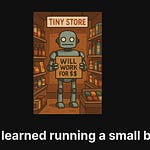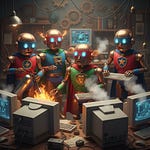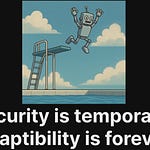(Like this article? Read more Wednesday Wisdom! No time to read? No worries! This article is also available as a podcast).
Ever since I started taking flying lessons, my respect for airline pilots has increased exponentially. Becoming an ATP certified pilot takes a lot of knowledge and experience, and the only way to get that is to apply yourself consistently for years. When I enter an aeroplane, I sit at ease knowing that the ladies and gentlemen flying the plane had to go through excruciating theoretical and practical exams with very strict examiners in order to be put in charge up there.
Whenever I go to the dentist, not anyone’s favorite activity I am sure (though there was this one receptionist…, anyway, I digress), I sit easier in the chair knowing that the person operating the drill has gone through a strenuous academic program and an equally strenuous practical qualification process. They might have been at the bottom of their class, but they are not uninformed nincompoops.
Pilots, dentists, electricians, and plumbers all need professional licenses in order to prove that they know what they are doing and that they can perform the work safely and according to code. In the state of Illinois, a hair braider has to go through a 300 hour training program and in Florida and Nevada, interior designers must obtain a license to practice, which often requires passing a rigorous exam and meeting education and experience requirements. Now, some of these requirements are very silly and exist for no other reason than to protect the insiders, but in general, society clearly has an interest in ensuring the qualifications of people who undertake work that can impact the wellbeing of the general public.
Why is it then that in software engineering, literally anyone can rock up and start working on applications that have an unsurpassed ability to negatively impact the digital wellbeing of people? And worse: Why do so many people working in the field seem proud that they are not technical?
Let’s start with that last question. Over my entire career I have regularly been in discussions on the riveting question of whether engineering managers need to be technical or not. What kind of question is that? You are managing a group of technologists! You need to understand their strengths and weaknesses and then contribute to their development. You are part of the process that sets the organization’s technological goals and you need to align various competing priorities. You need to coach your people on how to be effective in their technical jobs. Of course you need to be technical! Do you think that the head of the radiology department in a hospital knows nothing about radiology? Are the chief pilots of airlines not experienced pilots themselves? What is up with this question? Where does the thought come from that the manager of a group of technologists can be clueless when it comes to technology?
The counterpoint is often that the manager’s job is something else altogether and that in order to run the meetings, manage the oncall rotation, and prepare status reports, you do not need specific technical knowledge about the team’s field. I might, maybe, accept that there exists some hypothetical limit situation in which someone without technical knowledge but with the world’s most amazing management skills is successfully leading a team of the world’s most amazing individual contributors. But here’s the thing: I have never seen this happen in practice. All the good managers I have ever worked with were themselves good engineers. Sometimes they were rusty, but I had little doubt that given a month or two to ramp up, they’d be back in the game.
The same holds for (technical) project managers: All the good ones I have worked with had lots of technical knowledge and experience and could be engineers any day if they wanted to. It’s just that, all things considered, they’d rather be running projects than hacking code and systems all day. That’s fine, it takes all sorts and I am very happy that some of my technical colleagues want to do the work of making sure our projects stay on track.
There exists in many organizations a large amount of disdain for technologists. I see this especially in organizations that were originally not very technologically driven but that by now are completely dependent on technology, like banks. I vividly remember a shootout with a member of the “high potential” management program of some bank that found himself in the networking group. He wouldn’t recognize a UDP packet on port 53 if one would hit him squarely in the face, which was sad because the bank’s internal DNS left something to be desired, to say the least. His response to that complaint: “You techies are always complaining about the DNS server.” Yes, you muppet, because without a consistent mapping between hostnames and IP addresses, things get very brittle very fast!
Recently, I attended an online job seminar run by the Dutch government’s recruiting team, focused on hiring people for various open cybersecurity related roles. The whole point of that seminar seemed to be that you did not have to be technical in order to work in a lot of these roles. When asked, one of the speakers proudly announced that they were not technical at all and had studied pre-classic Germanic runes or something like that (I might be exaggerating a bit for effect).
The other way in which this seminar was not very inspiring was that it was made abundantly clear that most of these roles came down to feeding digital paper into various bureaucratic processes in order to keep the furnaces in the basement of the government going. The presentations were full of sentences like: “Our group creates the FBO reports that feed into the TPF program that in turn results in PSO decisions.” I was less than enthused by this…
Information technology is unique in this regard. I randomly went to a job board for the construction sector and looked up a job description for a senior project manager for design and construction. And, lo and behold, the requirements were a relevant bachelor’s degree and seven years of experience in the construction field. Here is another one, for a construction manager: “The successful candidate will have 5+ years of construction materials testing/inspection experience with at least 2 or more years of materials testing/inspection project management experience.” Experts in Germanic Runes apparently need not apply.
I understand that information technology as a field started in a difficult spot. As the demand for people exploded in the 80s and 90s of the last century, not enough people had been studying computer science yet and so companies had no choice but to hire people from all sorts of backgrounds and then hopefully train them on the job. In the early days of my career I came across many colleagues who had studied something else. This then gave rise to the fallacy that it didn’t really matter what you studied, because the only thing that employers were interested in is whether you could think and they would teach you the rest themselves.
This was clearly nonsense. I learnt things in my undergrad (which I started more than 40 years ago) that no company would ever teach me but which I still use regularly. One of my friends fell for this nonsense though and consequently she got a first class degree in Ancient History. Phenomenally interesting and I love talking to them about it, but dare I say it doesn’t help her much when it comes to finding a job?
Anyway, back to the topic at hand: If you want to be in this field, you need a lot of technical knowledge in order to be effective and successful. Our whole job is to solve problems with computers. Where on earth would you get the idea that you don’t need to understand computers very well in order to do that?
Unfortunately, many computer science programs are not helping. Years ago, I read an article in a Swiss newspaper that stated that the country needed more computer scientists and it pointed to a new program of a local college that sought to address this problem. I looked up the program and to my dismay I found the technically lightest possible program that could still, with the help of a large dollop of imagination, be called “computer science”.
Plumbers and electricians need a lot of technical knowledge in order to build things that do not explode or electrocute their customers on the spot. But building a cell phone app that gets access to people’s financial information or that can access people’s most private personal data requires no official qualifications at all.
I find this kinda weird.












